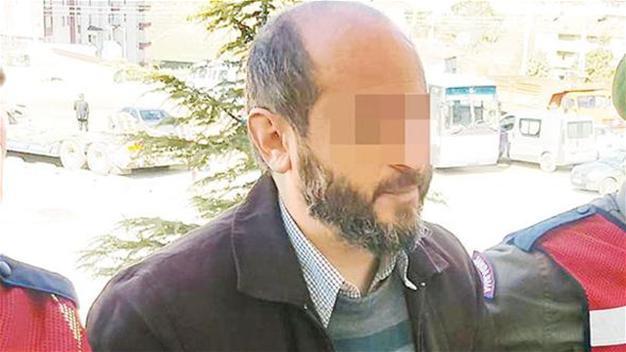Al-Qaeda suspect connected to 2003 HSBC bombing revealed as imam who sat national exam while on the run
Gülden AYDIN – ISTANBUL
 An Al-Qaeda suspect who was arrested in the central Anatolian province of Çankırı on April 19 for his involvement in the 2003 HSBC bombing in Istanbul has been revealed as a village imam who applied for the job after sitting a national exam while he was on the run.
An Al-Qaeda suspect who was arrested in the central Anatolian province of Çankırı on April 19 for his involvement in the 2003 HSBC bombing in Istanbul has been revealed as a village imam who applied for the job after sitting a national exam while he was on the run.Ziya Çelik, 42, who was sentenced to six years and three months in prison while he was on the run, had taken the national Public Personnel Selection Examination (KPSS) under his real name and was later interviewed by the Directorate of Religious Affairs (Diyanet) while he still had an arrest warrant.
He was appointed as a contracted imam to Çankırı’s Alıç village and received monthly salary from the state for almost one year.
The head of the village, Ali Osman Baş, said he was shocked about the news regarding the village’s imam.
“Çelik said he had some work to do in Istanbul on April 13. But said he would return for the April 16 referendum,” he added.
Baş said gendarmerie officials searched for the imam in the village and came three days after again.
“The gendarmerie surrounded the house when the imam entered. Did the Diyanet not investigate his background? He was married and had three children. We as the village welcomed him. He was at the forefront with a Turkish flag in his hand while we were on the streets to protest against the July 15, 2016, coup attempt. We were shocked,” he said.
Halil Erdoğan, Diyanet’s press advisor, said the suspect had submitted all the required documents in his job application.
“Ziya Çelik is our contracted imam. He began working on June 3, 2016. Public employees are required to submit the necessary documents before starting to work; he submitted them. But we did not know whether he had a criminal record when he applied. We should have asked the Justice Ministry for a background check. We cannot know whether he had a criminal record or an arrest warrant,” he said.
Çelik was detained by gendarmerie in Alıç following an earlier conviction for membership in al-Qaeda, although the imam also confessed to involvement in the 2003 bombings, in which 27 people were killed in two explosions in Istanbul. One blast destroyed part of the HSBC Bank headquarters in Levent, while the other damaged the British consulate in Taksim.
Çelik was initially detained on Nov. 27, 2003, after the bombings but was subsequently released by a court. He then traveled to Afghanistan, where he became a member of al-Qaeda.
The suspect was later apprehended and extradited to Turkey, where prosecutors opened a case against him for “being a member of a terrorist organization.”
Çelik, who was being tried without arrest, was sentenced to six years and three months in prison, but police only succeeded in tracking him down in Çankırı after receiving intelligence.
On Nov. 20, 2003, two suicide vehicle bombs were detonated outside the HSBC offices, as well as the British Consulate, killing at least 27 and injuring 400. Members of an al-Qaeda cell were convicted in the attack.
The British consul general, Roger Short, a 58-year-old career diplomat, was among those killed.
An anonymous caller to the state-run Anadolu Agency said the attack was a joint effort of al-Qaeda and a Turkish group, the Islamic Great East Raiders Front (İBDA-C), the agency reported.
The same group also claimed responsibility for the double bombing of two Istanbul synagogues on Nov. 15, 2003, in which 23 people were killed.
















